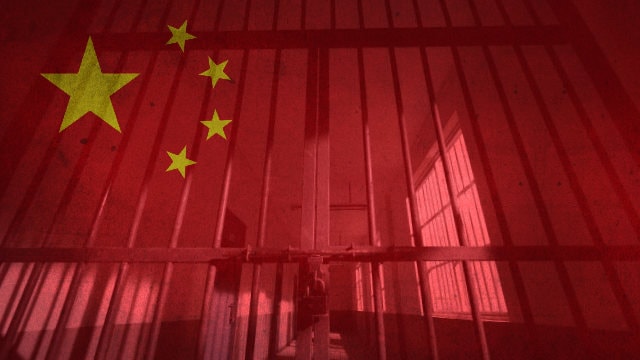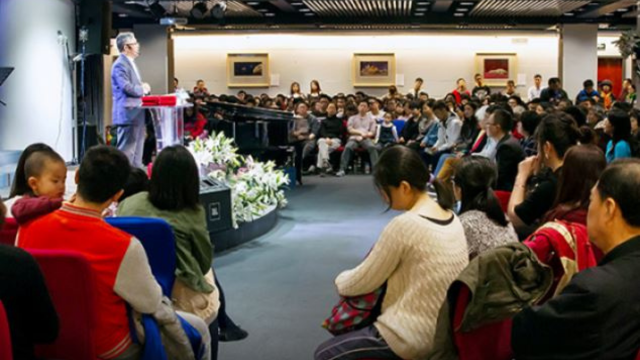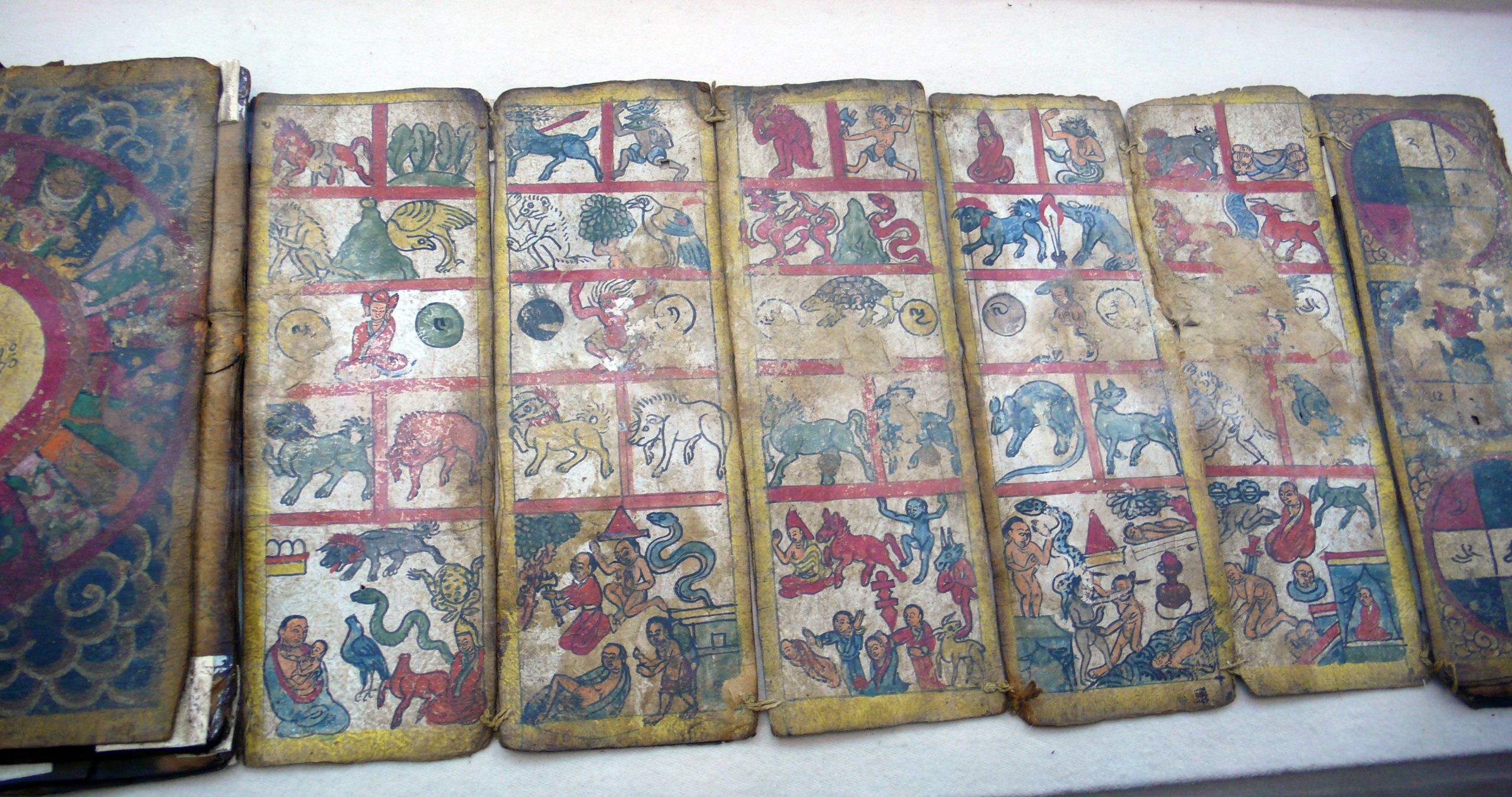
One of four young Uyghur men convicted in 2015 of terror-related offenses in Indonesia has pled for help from members of his ethnic group and the international community after the other three were forcibly deported to China, saying he fears persecution by authorities if he is returned home.
Ahmet Bozoghlan and three others—Ahmet Mahmud, Altinci Bayram, and Abdul Basit Tuzer—were sentenced to between six and eight years in prison and fined 100 million rupiah (U.S. $6,800) by a Jakarta court after being found guilty of entering the country by using fake passports and for attempting to join the Islamic State-affiliated Eastern Indonesia Mujahideen (MIT) militant group.
Last month, two counter-terrorism experts told BenarNews, an RFA-affiliated online news service, that Beijing paid the fines of Mahmud, Bayram, and Tuzer—whose six-year sentences, including time in detention, were complete—and repatriated them to China. Authorities in China’s Xinjiang Uyghur Autonomous Region (XUAR) are believed to have held up to 1.8 million Uyghurs and other Muslim minorities in a vast network of internment camps since early 2017.
Neither the Chinese nor Indonesian government have made any formal statements about the young men, although Uyghur activists told RFA that late last week, Indonesia’s Ambassador to Turkey, Lalu Muhammed Iqbal, confirmed their deportation to China. He gave the confirmation during a meeting with the Uyghur activists, according to delegation leader Nurettin Izbasar.
When contacted by BenarNews about the deportation, Iqbal responded only that “the government of Indonesia makes decisions in accordance with national laws and taking into account national security interests.”
RFA’s Uyghur Service recently spoke by telephone with Bozoghlan, who is serving out the remaining two years of his sentence and said he fears that he will be sent home next.
“My friends’ six-year sentences were up, but they were going to have to stay an extra six months as a fine for problems with their passports,” he said.
“China paid the six months of fees and then sent the three of them back home.”
Bozoghlan said that the three had been forced to sign documents by Indonesian authorities acknowledging that their fines had been paid and that, later, they overheard the head of their prison telling guards that the Chinese embassy had footed the bill and “planned to take them to China.”
When asked whether any independent observers were present while the documents were signed, Bozoghlan said his friends told him the authorities “didn’t want any of the ‘trouble’ that lawyers or journalists would cause.”
“They said it would be a lot of trouble if anyone were to find out,” he said of the authorities.
Last month, the counter-terrorism experts told BenarNews Indonesia carried out the deportation of the men in secret because many in the world’s most populous Muslim-majority nation are critical of China’s treatment of the Uyghurs.
When asked by BenarNews whether Chinese officials had pressured Indonesia during the investigation and prosecution of the four Uyghurs, an Indonesian Foreign Ministry spokesman declined to comment.
Seeking passage to Turkey
In addition to its nearly four-year campaign of extralegal mass incarceration in the XUAR, the Chinese government has subjected those not detained to intense surveillance, religious restrictions, and forced sterilizations, according to a report published in June by the Council on Foreign Relations, a U.S.-based think-tank.
Chinese officials have repeatedly denied these allegations, saying the camps are centers for vocational training and that the thousands of Uyghur Muslims arrested had links to extremism. However, reporting by RFA’s Uyghur Service and other media outlets shows that detainees are mostly held against their will in cramped and unsanitary conditions, where they are forced to endure inhumane treatment and political indoctrination.
According to Bozoghlan, he met the other three men in Malaysia, where the four of them had been trying for several months to make their way to Turkey—a nation whose citizens share cultural similarities with the Uyghurs, and which has an estimated population of some 60,000 Uyghurs in exile. Travel to Turkey for Uyghurs in China is prohibited by authorities due to the perceived threat of religious extremism.
“We ended up having some financial problems,” he said.
“There were also a lot of people [trying to take the same route as us]. For those reasons, we thought and thought about it, and we decided to try going to Indonesia in the hope we might find an easier route [to Turkey] from there.”
Instead, he said, the group fell in with MIT after members of the militant group offered to help them get to Turkey and arranged to provide them with fake passports in exchange for money.
“Then at one point [drivers for MIT] were detained” at a roadblock in connection with drug trafficking as they took the Uyghurs to a safehouse where they planned to wait until they could travel to Turkey, he said. At a court hearing, the drivers testified that the trio “were planning to join a terrorist group,” Bozoghlan said, adding that he believes “the Indonesian police officers who interrogated the drivers forced them to say this because China was putting so much pressure on them.”
“[The police] connected us to them in interrogations, and they came to the conclusion that we had a ‘relationship.’ But there was absolutely nothing we had done connected to terrorism or to hurting other people. We’d only come to Indonesia, and in the process of trying to get to Turkey we met [the group].”
Bozoghlan said he and his three comrades “didn’t know anything” about MIT and couldn’t effectively communicate with them because they didn’t speak Indonesian or English.
“We took a risk on them, and our only aim was asking for their help in getting to Turkey,” he said. “We trusted them and went wherever they asked us to.”
‘Asking for help’
After being detained in September 2014, Bozoghlan said that Chinese authorities—including Uyghur policemen and embassy officials—showed up on multiple occasions and accused them of being “black coats,” or terrorists.
Later, Indonesian authorities subjected the four men to torture, he said, in a bid to get them to sign documents confessing to being involved in terrorism.
“The police took us somewhere where there were no other people and put black hoods over our heads and tortured us brutally. They obstructed our breathing, squeezed parts of our bodies, tortured us brutally,” he said.
He said that the four of them never confessed during interrogations or in court, but that they signed a document “that neither we nor our translators fully understood, because we don’t know Indonesian.”
“We asked [the translators] to explain to us what we were signing, and they explained a bit of it to us in what little English we could understand, but we didn’t knowingly sign or confess to the charges that we were connected to a terrorist incident,” he said.
Additionally, Bozoghlan told RFA that he and his compatriots were assigned a lawyer by the Indonesian government who they were unable to speak with privately, due to the language barrier, and suggested that the lawyer was unable to represent them effectively.
In the end, Bozoghlan was sentenced to eight years in prison, while the other three were handed six-year terms.
“I don’t even know what ‘black coat’ means,” he said.
“I’m just someone who ended up getting detained in Indonesia while looking for a way to get to Turkey, and so I’m asking for help to go to Turkey or Europe or another place to seek asylum so that I am not returned to China.”
Ahmad Nursaleh, a spokesman for Indonesia’s immigration department, told BenarNews he did not know what will happen to Bozoghlan after his sentence is complete.
Allegations of torture
Asludin Hatjani, the government-appointed lawyer who represented the four Uyghurs, told BenarNews that he was unaware of whether the three Uyghurs had been deported to China because “after they were released, they have had nothing to do with me.”
But he said that since the identification documents they produced during their trial “showed they were Turkish citizens,” they should have been deported to Turkey—something he said “was acknowledged by Indonesia.”
Hatjani confirmed to BenarNews that Bozoghlan’s sentence had been increased to eight years in prison from six by the country’s High Court.
He said that while representing the four Uyghurs, they had never made allegations of torture by authorities.
“There were no complaints and there were no visible signs of violence on their bodies,” he said.
When asked about the allegations, Indonesian National Police spokesman Awi Setiono told BenarNews he had “no information” and referred further questions to officers assigned to the case.
According to Sidney Jones, an expert on Islamic militancy in Indonesia and the director of the Jakarta-based Institute for Policy Analysis of Conflict (IPAC), Bozoghlan is one of two remaining Uyghurs in Indonesia, the other being Nur Mahmet Abdullah, who she said had been imprisoned on Batam island. Abdullah was sentenced to six years in prison in November 2016 for planning to carry out a suicide bombing targeting Shia Muslims.
Jones said that Bozoghlan’s sentence had been extended on an appeal by the prosecutor in his trial. In the High Court ruling—a copy of which was obtained by BenarNews—Bozoghlan is listed as the “leader” of the group and a “Turkish national.”
“He had an authentic passport. He is from Turkey but is of Uyghur descent,” Jones told BenarNews. “If he was to be deported, it would of course not be to China, but to Turkey, because his passport was valid.”
‘The same as killing them’
The forced repatriation of three of the Uyghurs comes four years after Indonesia turned down a request from the Chinese government to exchange a fugitive Indonesian banker captured in China for all four of them.
Indonesia told China that a prisoner swap wasn’t possible because the charges against the four Uyghurs were different from those against the Indonesia banker.
Back then, an Indonesian official who requested anonymity said Indonesia would face international pressure if the country agreed to deport the Uyghur prisoners to China.
“Giving Uyghurs back to China is the same as killing them. Most probably, the Chinese government will execute them instantly,” the official told BenarNews in April 2019.
The Indonesian government has faced criticism at home and abroad for its silence on the alleged mistreatment of Uyghurs in XUAR.
Last December, thousands of people took to the streets in Indonesia and Malaysia to protest China’s treatment of the Muslim minority community.
Reported by Shohret Hoshur for RFA’s Uyghur Service, with additional reporting by Ahmad Syamsudin and Ronna Nirmala for BenarNews, an RFA-affiliated online news service. Translated by the Uyghur Service. Written in English by Joshua Lipes.
Source: Copyright © 1998-2016, RFA. Used with the permission of Radio Free Asia, 2025 M St. NW, Suite 300, Washington DC 20036. https://www.rfa.org.












